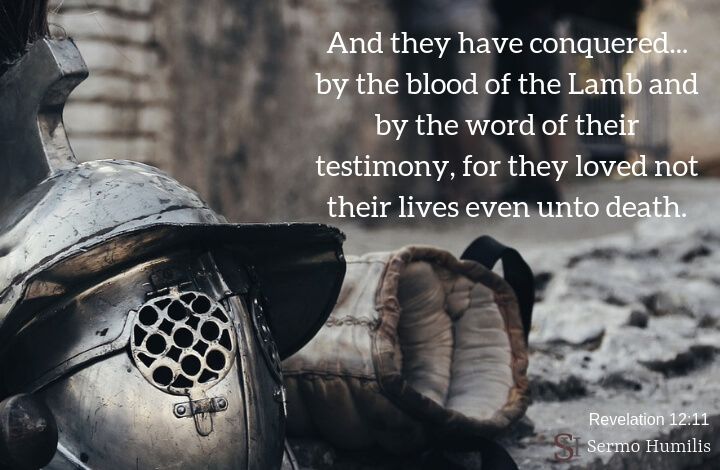
The modern concept of heroism, much like the pagan view through the ages, is that of a man or woman who fights to defend their honour. By contrast, the biblical view of heroism belongs to those who seek to defend God’s honour.
In a pagan world, a man’s honour is tied to his reputation. And so he fights for the honour of himself, his family, his clan and his nation. He champions his own rights and when those rights are withheld and his dignity smeared he will fight to the bitter end.
Pride, honour and nobility are his to maintain and die for.
The Christian walks another path. He walks the path of obedience, submission and humility. The pagan hero is motivated by threats to his dignity and self-worth. The Christian man is motivated by the dignity of the one he serves.
The pagan hero seeks an honourable death. The Christian accepts the monumentally shameful death of being crucified with nails and pinned by a spear while hanging naked from a cross.
The pagan concept of heroism is that of one who stands his ground, demanding his own rights and is even willing to kill to preserve his honour.
The Christian guards and preserves the commandments and honour of God – starting with submission to those commandments in his own life.
When the Philistines kept seizing Isaac’s wells, Isaac simply moved on to another place and dug another well. And so, from a pagan point of view, Isaac was a failure. But God was pleased and Isaac, along with his posterity have since been exalted above all men.
John the Baptist lost his head and died without honour for upholding God’s word in a pagan palace.
Isaiah was thanked for his efforts by being sawn in two, and a multitude of humble believers have been left destitute, chained, shamed and killed unceremoniously for having the same faith.
For the pagan hero, the guiding principle is, “My country, right or wrong.” Their chief love, their first love, is themselves. It has to be this way because this world and this life are all they have.
But Abraham chose to leave his country and sought a better city whose builder and maker is God.
It’s easy to fall for this kind of pagan heroism in our own walk with Christ, in our activism and in our willingness to do anything we can to retain our honour. But this is not heroism.
The hero of the story you are currently in will not be those who fought tooth and nail for their rights, their own self-important honour and dignity.
The heroes will be those who honoured Jesus and His Kingdom above their own.
It will be those who lost worldly honour, applause and dignity and who accepted humiliation, betrayal and injustice on account of their faith and obedience to God.
It will be those who, so far as it depended on them, simply moved to another town and dug another well.

 What do You Want to Read About?
What do You Want to Read About?